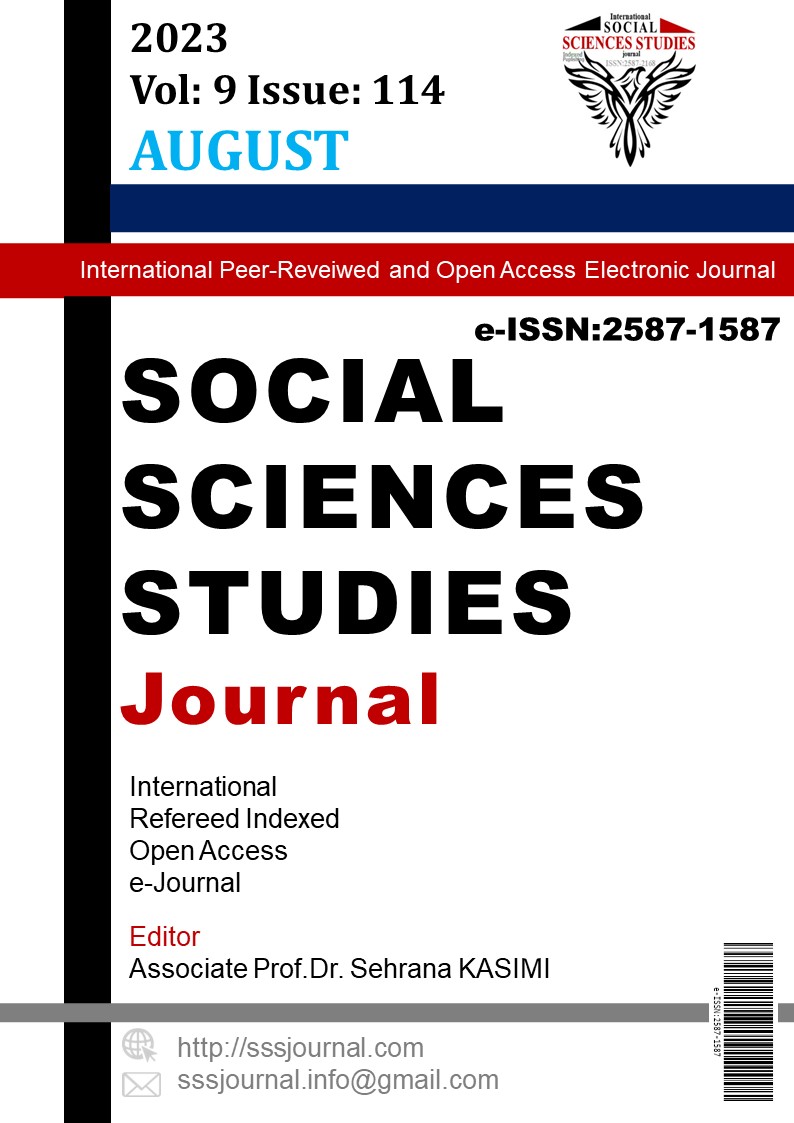Author :
Abstract
Yenidünya düzeniyle birlikte değişen ve gelişen eğitim-öğretim de devamlı değişim ve gelişim olmaktadır. Bu gelişimlerle birlikte modern öğrenme ve öğretme çalışmaları öğrenci merkezli eğitim sistemine, yaparak-yaşayarak öğrenmeye, araştırma-inceleme yoluyla öğretmeye vurgu yapmaktadır. Bu minvalde eğitim-öğretimde öğrencilerin beklentilerine uygun öğrenme-öğretme hayatlarını düzenlemek ve öğrencilerin ihtiyaç ve ilgilerini dikkate almak önemli bir gereksinim olmuştur. Bu gereksinim Din eğitimi için de böyledir. Din Kültürü ve Ahlak Bilgisi dersi için hem dersin uygulama aşamasında hem de program geliştirme sürecinde öğrencilerin beklentilerini ortaya koymak gerekmektedir. Yapılan bu araştırma din öğretimi açısından düşünüldüğünde eğitim ve öğretimde önemli meselelerden biri olan ve belki de eğitimin öğrenciler üzerinde yapılan bir alan çalışmasıdır. Araştırmamız Arnavutköy ilçesinde orta öğretimde (Lise) eğitim ve öğretim gören öğrencilerle yapılacak bir nicel araştırmadır. Araştırmamızda evren 9-10-11 ve 12. sınıf öğrencilerini simgeleyecek şekilde nitelikli atama (amaçlı örnekleme) yöntemine göre tercih edilmiştir. Araştırmaya katılan öğrencilerin Din Kültürü ve Ahlak Bilgisi dersi programına ait tutum düzeyleri, kendi fikir ve görüşlerine dayalı olarak Likert tipi beşli derecelendirme ölçeğiyle toplanmıştır. Her tutum tabiri için “tamamen katılıyorum”, “katılıyorum”, “kararsızım”, “katılmıyorum” ve “kesinlikle katılmıyorum” düzeyleri kullanılmıştır. Öğrencilerin değerlendirilmeleri belirtilen katılım oranları toplam puanlar kullanılarak yapılmıştır. Katılım düzeylerine ilişkin toplamda puanlar hesaplanmış, bu değerler 1’den başlayarak büyükten küçüğe doğru sıralanmıştır. Öğrencilerin 9-10-11 ve 12. Sınıflar için mevcut programa katılım düzeyleri belirlenmiş, bulgular yorumlanmıştır.
Keywords
Abstract
With the new world order, there is continuous change and development in education and training. Along with these developments, modern learning and teaching studies emphasize student-centered education system, learning by doing-living, teaching through research and investigation. In this respect, it has become an important requirement to organize learning-teaching lives in accordance with the expectations of students in education and to take into account the needs and interests of students. This is also the case for religious education. For the Religious Culture and Ethics course, it is necessary to reveal the expectations of the students both in the implementation phase of the course and in the program development process. This research is a field study conducted on students, which is one of the important issues in education and training when it is considered in terms of religious education. Our research is a quantitative research to be conducted with students studying in secondary education (high school) in Arnavutköy district. In our research, the population was chosen according to the qualified assignment (purposive sampling) method to symbolize 9-10-11 and 12th grade students. The attitudes of the students participating in the study were collected with a Likert-type five-point rating scale based on their own ideas and opinions about the Religious Culture and Ethics course program. For each attitude statement, the levels of "strongly agree", "agree", "undecided", "disagree" and "strongly disagree" were used. The students were evaluated using the total scores for the stated levels of agreement. The total scores for the levels of participation were calculated and these values were ranked from 1 to the highest to the lowest. Students' levels of participation in the current program for grades 9-10-11 and 12 were determined and the findings were interpreted.
